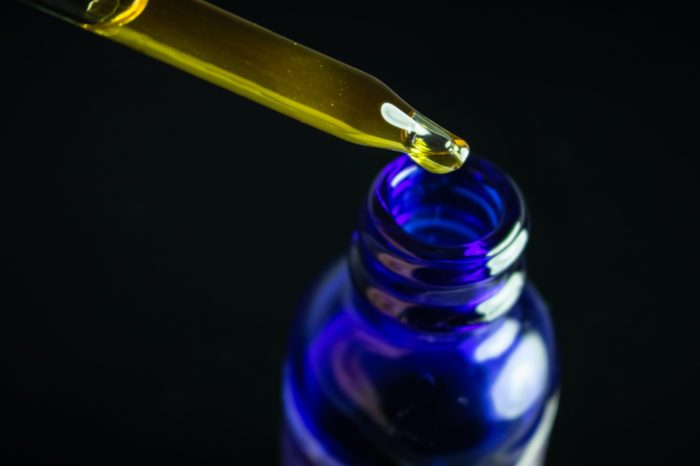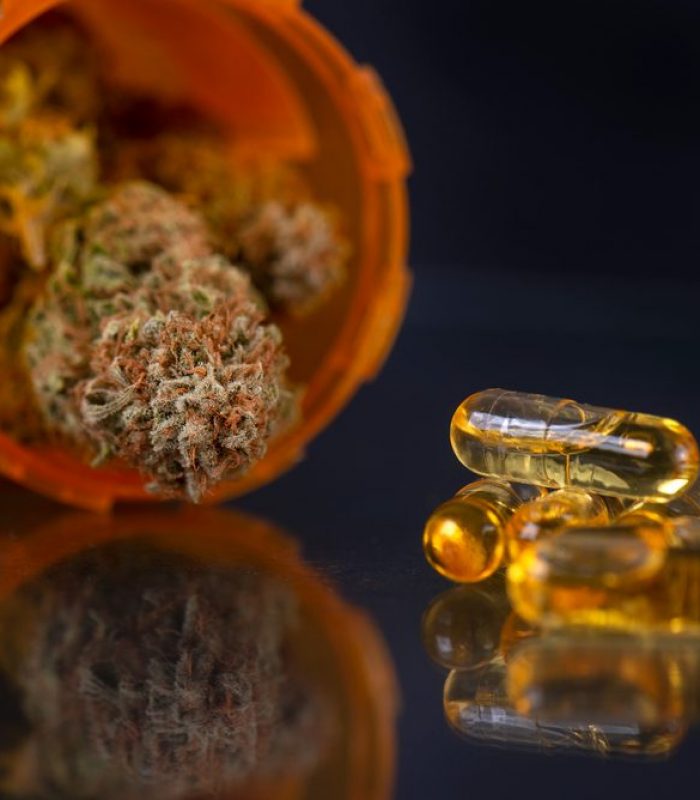So many factors go into making an informed decision about which CBD oil is right for you.
Overwhelmed by the cannabidiol (CBD) market? You’re not alone. This gotta-have-it product is flying off store shelves across the world at an ever accelerating pace. As a result, the market is pumping in every CBD product conceivable. But its popularity has become a double-edged sword, drawing in a good number of con artists and snake oil salesmen eager to make a quick buck off an ill-informed public. How do you decide which CBD oil is right for you?
Even if you could magically weed out all the untested, ineffective, and unethical products in the CBD marketplace, you’d still be left with, what psychologist Barry Schwartz famously dubbed, “The Paradox of Choice.” This is thanks to the approximately 4 million products that are currently on the market for CBD consumers.
There are pills, patches, creams, oils, tinctures, edibles — if it’s non-toxic, someone has put CBD in it. And that’s not the only point of confusion for choice. You’re also going to have to choose what kind of CBD that you want: “full spectrum” or “isolate”? The names aren’t exactly intuitive. Then there is hemp-based CBD and ‘marijuana’ based.
The only way for CBD consumers to get the right product for their desired results is to do some research. This step-by-step guide will make it easier for you to make the right choice.
Step 1: Why are you Buying CBD?
If you’re considering making a CBD product purchase, the first thing you need to be able to answer is why. Research is underway to determine CBD is an effective treatment for a wide variety of ailments, but these are not yet complete. Additionally, not all strains and delivery methods suit each purpose. Plus, CBD is not the right answer for every situation, regardless of what the media is telling you.
So, you need to decide very specifically what’s most important. Are you after pain relief for nerve or inflammation? Are you trying to treat insomnia or PTSD-induced insomnia? Anxiety or depression? Is it Parkinson’s tremors or MS spasms? The more specific you can be, the more your pharmacist or budtender can steer you in the right direction.
Step 2: Should You Buy Isolate Or Full-Spectrum?
Full Spectrum, or “full plant” comes with the total complement of medicinal ingredients in cannabis medicine. These include: cannabinoids, terpenes, and flavonoids. The interaction of all of the components is believed to have superior medicinal power over the individual parts, through a process called The Entourage Effect.
Isolate CBD is the name given to purest form of CBD products. The cannabinoid, CBD, has been extracted from the plant to the exclusion of other cannabinoids or terpenes and flavonoids. It comes as a powder or a hardened, rock-like substance.
The generally accepted rule is that full spectrum is medicinally superior to an isolate. This is due to the Entourage Effect. There may, however, be cases where an isolate is more appropriate. Pediatrics would be one case; if the child’s condition is treated by CBD, it may be unnecessary to add in THC. Isolates also allow you to increase the CBD concentration and accurately manage dosage, which is important for all patients. Finally, CBD isolate products include powders that can be stirred into beverages, making this an easily transportable choice.
Step 3: Is Hemp Oil Just As Good As ‘Cannabis’ Oil?
The Cannabis sativa plant splintered off into hemp and what we now call “cannabis/marijuana” (even though both are technically ‘cannabis’) a million or so years ago when it caught a virus. The two continued to evolve separately, one to have medicinal benefit and one to be advantageous in industry.
Cannabis (marijuana) has been cultivated for hundreds of years for its medicinal properties. A cannabis CBD oil is going to contain a good concentration of CBD along with the other medicinal components of cannabis.
Hemp is naturally low in THC (typically 0.3%), making it a potentially attractive option for those seeking low THC. Unfortunately, the hemp plant is also relatively low in CBD, which makes up 3 to 5% of the plant cannabinoid concentration. This means you actually need a lot of hemp to make CBD products.
Another potential misfire is the “hemp” designation, as hemp oil and hemp extract are not the same thing.
Hemp Oil/Hemp Seed Oil: made from cold-pressed hemp seeds. This will contain very few cannabinoids and is not worth purchasing if you are looking for medicinal treatment. If you are looking to boost your health, by all means, take it daily as if it were a vitamin.
Hemp Extract Oil: full spectrum oil made from the whole plant. We caution you to know your producer. Many hemp extract oils that are currently on the market are filled with hemp seed oil (read above) with a tiny bit of hemp extract mixed in. Some are even mixed with vegetable oil!
Hemp Extract: is the real deal, the full complement of cannabinoids, terpenes, and flavonoids. The only consideration you would have here is asking the producer what their extraction methods are. You want to have a properly prepared product free of solvents.

Step Four: Check the THC Concentration
THC is the other active ingredient in cannabis, the psychoactive portion. Because it’s illegal under (American) federal law and because most CBD patients want the plant strictly for its medicinal value, it’s recommended that you find a CBD isolate product if you are concerned about legalities or drug testing.
Consumers who live in a place with legalized medicinal or recreational cannabis can access oils and other products that contain both CBD and THC in abundance. Then it becomes a game of figuring out which ratio is most appropriate for you. A “CBD oil” in Canada, for example, generally refers to full spectrum oil made from a plant high in CBD. In the U.S., on the other hand, CBD oil is hemp-based or a CBD isolate product.
Step 5: Choose an Appropriate CBD Concentration
This is arguably the most important part. CBD oil comes in a range of potencies, and is labeled either by percentage of CBD in the oil (typically from 2 to 20 percent) or amount of CBD in milligrams, such as 250 mg or 1,000 mg. In both cases, the higher the number, the more powerful the product.
As with any new medicinal substance, it’s always best to start small and build up. The good news is that CBD has no reported adverse side effects and is safe for use with all patients. It’s just that higher potencies tend to cost a lot more, and you don’t want to be wasting your money when a lower concentration would suffice. So consider what lines up with your budget.
Other Things To Consider Before Buying CBD Oil
CBD oil must be extracted from the cannabis or hemp plants, and the method of extraction is important. The best CBD oils are extracted via a process using CO2 (carbon dioxide), but can use natural oils like olive or coconut. However, some manufacturers use chemicals like butane to extract CBD, which can leave the final product with unwanted chemical remnants. Before you buy a product, check out how the CBD has been extracted. If the bottle doesn’t say, don’t buy it.
While the method of delivery of CBD can make a difference in effectiveness, it’s likely very small. Instead of haranguing yourself about it, choose the CBD oil that best fits into your lifestyle. There are tincture drops that can be placed on or under your tongue or pills for discrete users, while other people may opt for quick-acting vape oils in the privacy of their own home.
The bottom line is that the more you know going in, the better your experience is going to be. Don’t be afraid to read labels. If you can check for potency and extraction method alone, you’ll be well ahead of the game.







Alejandro J Lopez
Besides about, wich is the best, we need to know WHERE to find for buying or Who is selling the one we need.
Jennifer Grant
Unfortunately, that changes region to region. What we can buy in Canada will not be the same as other countries. It’s useful to know what to look for on the products nearby. If you visit the patient forum and ask for recommendations in your region, I’m certain you will find what you need.